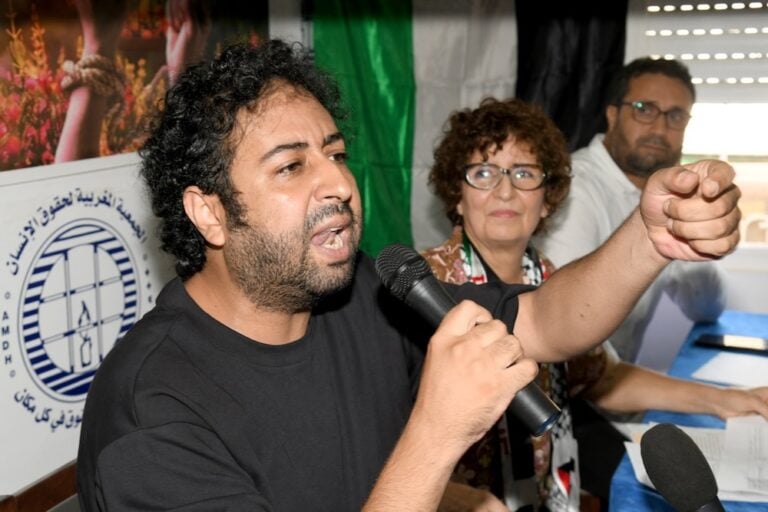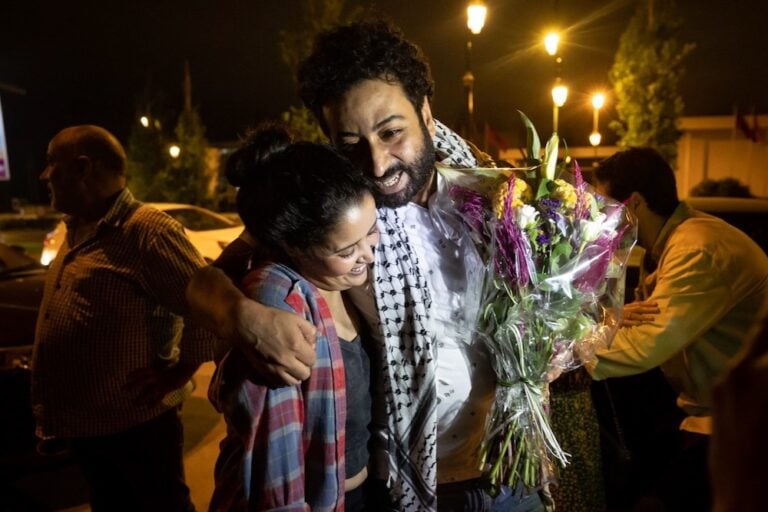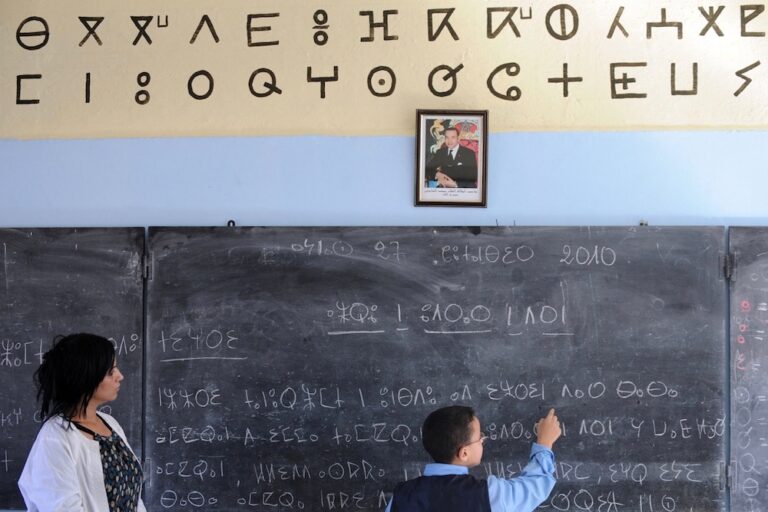Authorities also banned the distribution of the 26 February issue of "El País" on the grounds that it contained defamatory statements “attacking His Majesty’s image and the country’s institutions.”
(RSF/IFEX) – 29 February 2012 – Reporters Without Borders is disturbed by Morocco’s recent newspaper censorship and attempts to suppress online free expression. Distribution of the leading Spanish daily El País was again banned on 26 February while two netizens have been given jail sentences in the past few weeks for criticizing the king on social networks.
“Morocco has taken the road of political reform, holding a constitutional referendum in July and parliamentary elections in November, but freedom of information is still limited by the two notorious red lines – the king and Islam,” Reporters Without Borders said. “Without freedom of information, the recent attempts to democratize Morocco are doomed. We urge the authorities to apply the same liberalization approach to the media as to the political domain.”
El País banned
Distribution of the 26 February issue of El País was banned on the grounds that it contained defamatory statements “attacking His Majesty’s image and the country’s institutions.” The offending article consisted of extracts from a book by Catherine Graciet and Eric Laurent entitled “Predator king: buying up Morocco,” which looks at King Mohammed’s accumulation of wealth. His fortune has doubled in the past five years, the authors claim.
The communication ministry said the prohibition was issued under article 29 of the press code, which forbids any statements attacking the king. It came just 10 days after an earlier ban, on 16 February, on an El País issue with a cartoon of the king.
Reporters Without Borders condemns the failure to change legislation that punishes comments deemed to be offensive to the monarchy and nation. Laws need to be amended in order to stop constraining the freedom of expression and information that is fundamental in a democracy.
Morocco’s constitution, which was amended in 2011, makes no provision for punishing freedom of expression but the monarchy’s sacred status is enshrined in article 46, which says “the person of the King is inviolable” and the criminal code contains an array of sanctions for anyone violating this article. Reporters Without Borders deplores the use of lèse-majesté charges to obstruct freedom of information.
Reporters Without Borders expressed its concern about the increase in censorship in a letter to the Moroccan authorities on 9 February, condemning the repeated publication bans placed on magazines and newspapers on the grounds of not offending religious sentiment. According to the Spanish news agency EFE, a total of 29 foreign publications were banned from January 2011 to February 2012, including 22 French newspapers and magazines.
Rachid Nini, the editor of the Moroccan daily Al-Massae, has meanwhile been held since 28 April 2011 and is serving a one-year jail sentence on a charge of disinformation that was upheld on appeal on 24 October. He was arrested for publishing articles about government corruption. Reporters Without Borders reiterates its call for his immediate and unconditional release.
Online censorship
Walid Bahomane, an 18-year-old student, was tried behind closed doors in Rabat earlier this month on charges of Internet “piracy” and “insulting the sacred values of Morocco and the King” for posting humorous videos and cartoons, including a cartoon of the king, on Facebook.
Apparently deciding that the case did not involve free expression, the court finally convicted him on the piracy charge alone on 16 February, sentencing him to a year in prison and a fine of 10,000 dirhams (1,000 euros).
Bahomane has been held since 24 January, when the police “seized two Facebook pages (sic) containing phrases and images that insulted sacred values, and an IBM computer.” This young netizen is appealing against his conviction but no date has been set for a hearing.
Another student, Abdelsamad Haydour, 24, was convicted in a summary trial behind closed doors in the northern city of Taza on 13 February for criticizing the king in a video posted on YouTube. The court sentenced him to three years in prison and a fine of 10,000 dirhams on a charge of “attacking the nation’s sacred values.”
In the 4-minute video, filmed during a demonstration in Taza, Haydour lambasted the regime and described the king as a “dog of a dictator.” He was not allowed access to a lawyer of his choice and the court did not assign one to defend him during the trial.
Mohamed El Boukili, a member of the Moroccan Human Rights Association’s administrative committee, told Reporters Without Borders that irregularities marked both trials. Both Bahomane and Haydour signed statements without their lawyer being present and after being held in custody and harassed by the police.
“Such procedures are unfortunately the norm in Morocco and, in cases involving the king’s sacred status, prosecutions end only too often in prison sentences,” El Boukili told Reporters Without Borders.
Reporters Without Borders has also noted a surge in pro-government cyber-activism on the Moroccan Internet. A group calling itself Kingdom Moroccan Attack keeps hacking into the Facebook pages and email accounts of independent journalists and members of the opposition 20 February Movement.
Pro-government disinformation and propaganda campaigns are also being waged online. According to the VoxMaroc blog, some of these campaigns are being steered by the cyber-police, who also have very sophisticated Internet surveillance tools. One of these is a spy programme provided by the French company Amesys.
Morocco fell three places in the latest Reporters Without Borders press freedom index and is now ranked 138th out of 179 countries.


